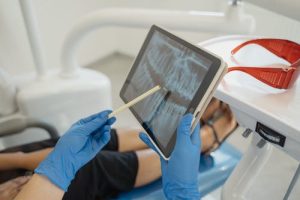
A Healthy Pet After Spaying: Vet Exams and Vaccines
Wanting the best for your pet is the instinct of a responsible owner. Giving your pet the proper medical care after spaying is vital since it significantly impacts their health and well-being. Other measures can be taken to ensure your pet lives longer and healthier after the vital spay operation. Regularly scheduled veterinary checks and vaccinations are crucial to keeping your pet’s health in check and preventing future health issues.
After spaying, prioritize routine medical examinations and vaccinations for your pet’s health. Investing in your pet’s health now may seem like an extra investment, but it will help you save cash and pain later.
Pet Care After Spaying
This section will explain in greater detail why taking your pet in regularly for check-ups and vaccinations following spaying is essential. Understanding the significance of these steps will ensure that you give your furry friend the proper care they deserve.
1. Early Disease Detection
However, even if the pet seems healthy, it’s still essential to have it checked out for check-ups regularly with your vet. Spaying your pet increases the possibility of complications such as inflammation, infections, and even behavior issues. A visit to the vet on a regular basis can let you know of developing problems and get them the care they need before they become worse. Visit this site: www.applevalleyanimalhospital.com/site/veterinary-services/cat-dog-routine-exams to book your pet for an appointment.
2. Prevent Disease Through Vaccination
Vaccinations are essential to preventative care for your pet because they can protect your pet from a range of ailments. Your pet’s immunity may be compromised following spaying, increasing its chance of getting sick. Giving your cat or dog regular vaccinations will help to protect against harmful infections and extend their lives.
3. Monitor Recovery
Spaying is an insidious surgical operation that necessitates relaxation and healing following. In the meantime, there is a possibility that your pet will feel pain, discomfort, or difficulties. Checking in with your vet often will enable you to verify if your pet’s getting better and not suffering from any issues.
In addition, your veterinarian will give you tips about how to look after the pet during this period, for example, administering pain medications, keeping the site of the incision clear, and limiting their activity.
Know more about this procedure by checking out this website: www.applevalleyanimalhospital.com/site/veterinary-surgery/spaying-neutering.
4. Checking Overall Health
You can ensure your pet’s health is in good shape and thriving by regularly visiting the vet for check-ups and vaccinations. Your veterinarian will perform several examinations, including weighing and measuring your pet’s weight, listening to their lungs and heart, observing the health of the teeth and ears, and assessing any apparent signs of abnormalities.
Check this site: www.applevalleyanimalhospital.com/site/veterinary-services/cat-dog-vaccinations-parasite-preventio to know more about the different veterinary services. They may also give you tips on giving your pet the best possible lifestyle regarding diet, fitness, exercise, and other care areas.
5. Cost-Effective
Regular check-ups and vaccinations for your pet can seem unnecessary, but they could save you cash in the end. The early detection of health issues through routine check-ups can help avoid the need for more expensive treatments or even surgery in the near future. In addition, vaccinations can help safeguard your pet from diseases that require medical treatment.
Remember, you can save a lot of money over the long term by beginning to care for your pet instead of just waiting until they become sick.
Conclusion
Maintaining your pet’s wellness after spaying requires routine medical check-ups and vaccinations. Alongside giving your pet a better chance of a long, healthy life, keeping up with these preventative steps can help you save costs and heartache in the long run.
You are responsible for the health of your pet as the owner. Therefore, feel free to schedule an appointment with your veterinarian to discuss ways to look after your pet once it’s been neutered or spayed.


